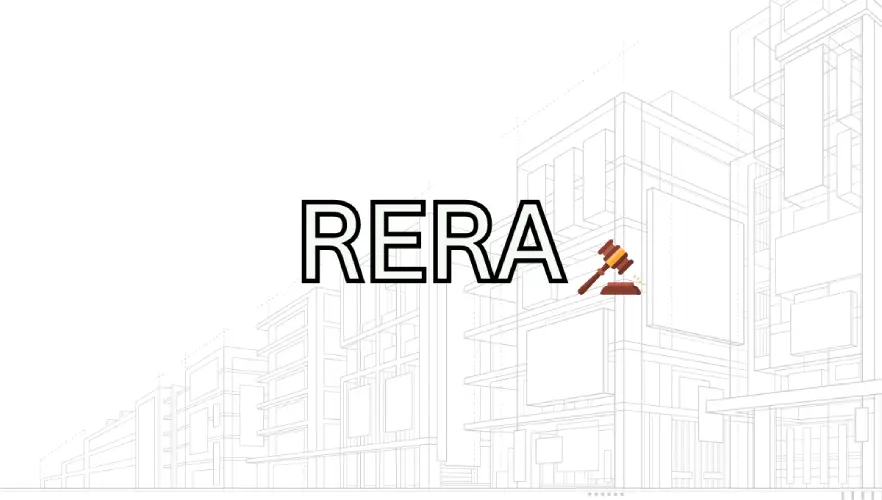Selecting the proper home can take time, and purchasing one is a significant choice. Read the sale agreement carefully before signing it because once you do, it becomes legally binding. Later, you won’t be able to dispute its conditions. A sale agreement may have provisions that could cause problems because it is not a typical contract. As a result, it is crucial to properly review it. It contains information on delivery, the property, and other crucial terms. State laws control this legally enforceable document. We’ve outlined the main features of the BBA, such as its significance, purpose, and meaning.
What is a Builder-Buyer Agreement?
A builder-buyer agreement is a legal document that attests to the buyer’s ownership of the property and guarantees their rights under predetermined conditions. Approvals, annexures, terms, conditions, and mutually agreed-upon flat layouts are all included. It is essentially a legal document that outlines the essential conditions of the sale of the property.
The need for this document is growing continuously and adheres to the Real Estate (Regulation and Development) Act of 2016 (RERA). The registration of projects is mandatory for private real estate developers within three months of notification received from their respective state governments. After successful completion of registration, the developers are allowed to provide any advertisements for the projects related to selling off or offering any possession to the consumers.
The most common issue that most buyers face is that after signing the agreement, they may not be given the appropriate property that they have signed for. A buyer has the right to raise a complaint against the developer regarding this BBA.
Importance of a Builder Buyer Agreement (BBA)
Clear contractual conditions are crucial for the buyer when purchasing a property. Possession delays can be extremely stressful, and some real estate agents may take advantage of legal gaps to deceive purchasers. By holding the builder responsible for their responsibilities, preventing violations, price adjustments, or structural flaws, and covering delays, a builder-buyer agreement safeguards the buyer.
A builder-buyer agreement is crucial for the following main reasons:
- It guarantees that the buyer’s expectations are met during construction.
- It explains each party’s rights, responsibilities, and duties in detail.
- It avoids miscommunications or conflicts during building.
- It outlines the terms and conditions for the process of developing real estate.
- BBA ensures high-quality construction that satisfies the expectations of the buyer.
- Buyers should carefully read the contract before signing it.
Purpose of BBA
Prior to signing a contract, you should understand its goal and the reasons behind it. Let us know the aspects of your building project that cover the BBA as follows:
- Payment transactions
- Scope of work
- The exact completion date or period
- The specifications and quality standards, including warranty period
- Compliance certificate that includes building codes.
What are the Parts of a Builder-Buyer Agreement?
Three important parts comprise a BBA:
- General Conditions – Standard terms that apply to all buyers, such as the builder’s responsibility for construction defects and stamp duty payment.
- Special Conditions – Terms specific to the buyer, like the payment schedule and possession date.
- Product Specifications – Details about the property’s materials, design, and quality.
The BBA is a legal document that must be signed before possession, even if you’re paying through a home loan.
Things to Check Before Signing the Builder-Buyer Agreement

One important legal agreement that specifies the conditions for the sale and possession of real estate is the builder-buyer agreement (BBA). Before signing, buyers should carefully evaluate the following crucial issues:
- Check the Credibility of the Builder
Examine the builder’s prior work and online reviews to make sure they are trustworthy. Their dependability and professionalism are revealed by client reviews and project excellence.
- Examine Warranty and Inspection Terms
Examine warranty and inspection provisions to verify the builders’ handling of construction flaws. Within a certain time frame after completion, they must offer a warranty for any problems.
- Review the Terms of the Contract
Read the agreement carefully, paying particular attention to the sections about permits, deadlines, and zoning. Recognise how each clause affects your obligations and rights.
- Examine the Terms of Payment
Review payment schedules, total expenses, late fees, and registration fees in detail. Make sure any information about payments is understandable and stated clearly.
- Look for Legal Support
Hire a legal professional to examine the contract for any unfavourable clauses or hidden gaps. They can answer any questions and protect your interests.
Builder-Buyer Agreement Format
To address default conditions, a builder agreement specifies all project specifics, amenities, and deliverables. Although there is no set format, an example builder agreement might contain:
- Name of buyer
- Name of developer
- Address of property
- Terms of purchase
- Super built-up area
- A built-up region with facilities
- Parking information
- Schedule of payments and cancellation fees
Builder-Buyer Agreement Before the Rera Act

Before RERA, BBA agreements were disproportionately in favour of builders. Delivery schedules frequently stated 36–42 months but were vague about when this period began. While buyers faced severe penalties of up to 24% per quarter for late payments, builders could raise property prices citing shortages of raw materials.
In certain instances, builders could demand an additional 20–30% if property areas were changed, or they could cancel allotments due to late payments without penalties for changes in development plans. Additionally, builders may levy transfer charges if buyers switched ownership before possession, but they were not penalised for modifications to development plans. Customers suffered enormously from these methods.
Builder-Buyer Agreement After the Rera Act
The builder-buyer agreement model has been changed by real estate regulations to rectify the previous agreement’s bias in favour of builders. The Real Estate (Regulation and Development) Act, 2016 (RERA) established regulations mandating that builders submit important documents to purchasers with their applications, including a signed transfer deed, sale contract, and proforma letter. In addition to outlining the party’s respective responsibilities, these contracts contain an Earnest Money Clause that restricts the builder’s ability to claim earnest money up to 10% of the property’s cost.
The agreement must unambiguously describe every facet of the project, including internal and external development, following Section 13(2) of the RERA 2016. The builder is legally required to address any issues within a reasonable amount of time if they fail to deliver as promised.
Conclusion
For homebuyers, a builder-buyer agreement is a crucial document. It guarantees a seamless transaction by providing clarity, openness, and legal protection. To safeguard your interests and guarantee a fair transaction, it is crucial to thoroughly understand the BBA before making a home purchase. When applying for a home or mortgage loan, the agreement is also helpful.
FAQ’s
A formal legal document that specifies the obligations, terms, and conditions that the buyer and the builder must follow is called a builder-buyer agreement.
Yes, it is crucial to get the builder-buyer agreement completed and registered following the initial booking deposit in order to safeguard one’s rights. When applying for a home loan or mortgage loan, this builder-buyer contract will be required.

